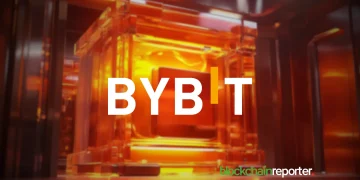Introduction
Starting September, virtual asset exchanges in South Korea, equipped with real-name accounts from banks, must establish a reserve minimum of 3 billion won. This directive stems from the Korea Federation of Banks’ guidelines for operating real-name accounts.
Background: Preparedness of Different Exchanges
As the deadline for reserve compliance approaches, exchanges in the won market (facilitating won-to-coin transactions) possessing real-name accounts are already in line with these stipulations. However, coin-only exchanges are facing challenges meeting these requirements, potentially hampering their negotiations with banks for real-name account acquisition.
Purpose of the Reserve Requirement
On the 24th, industry insiders revealed that virtual asset exchanges, once provided with real-name accounts, are mandated to establish reserves ranging between 3 billion and 20 billion won from September. This mandate is designed to cover user compensations in unforeseen events such as cyber-attacks or technical glitches.
This banking regulation requires virtual asset exchanges to either set aside 30% of their daily average deposits or a minimum of 3 billion won as reserve, whichever amount is more significant. As an example, for major exchanges like Upbit, 30% of daily deposits far surpasses 3 billion won, requiring them to reserve such amounts. However, if 30% of the daily deposit goes beyond 20 billion won, the reserve is capped at this amount.
Other Banking Measures
The banking sector has also incorporated several other criteria in its guidelines, including bolstered customer verification and added verification for fund transfers. While these guidelines are slated for January 2024, the reserve requirement has been fast-tracked for September, emphasizing rapid user protection.
Financial Authorities’ Stance
The Financial Services Commission’s Financial Intelligence Unit (FIU) has reportedly drafted the “standards for issuing bank real-name accounts,” taking into account the Korea Federation of Banks’ operational guidelines. Given the clamor from exchanges lacking real-name accounts for clearer criteria, the financial authorities have put forth a transparent reserve size standard, expecting it to become a prerequisite for real-name account issuance.
Statements from Major Exchanges
A representative from Upbit affirmed their seamless preparations according to the Korea Federation of Banks’ guidelines. Similarly, a Bithumb spokesperson assured their commitment to these operational standards.
Concerns for Coin Market Exchanges
However, a significant issue arises for most coin-only exchanges, which are notably capital-depleted. These exchanges, devoid of real-name accounts, don’t need to fulfill the September reserve requirement. Still, a minimum reserve of 3 billion won is mandatory to stay competitive by obtaining a real-name account.
Due to the 2021 modifications in the Specific Financial Information Act (Special Financial Transactions Act), trading volumes for these exchanges plummeted, not aiding in won-to-coin transactions. For them, a 3 billion won reserve is seen as excessive, complicating the reserve amassment process and jeopardizing negotiations with banks for real-name account issuance.
An individual from the virtual asset sector remarked, “Some believe Hanbitco might be the last exchange to acquire a real-name account.” The struggles indicate that several might choose to bow out.























